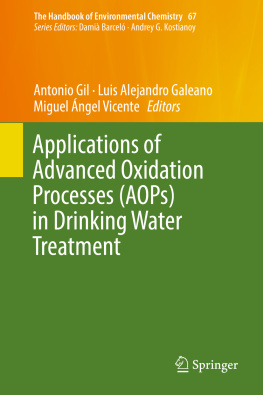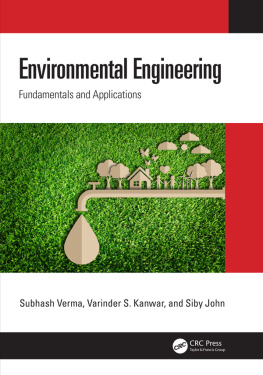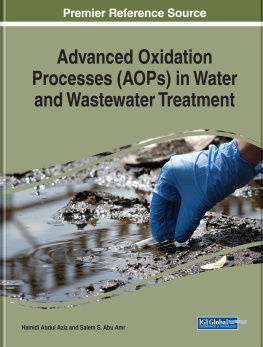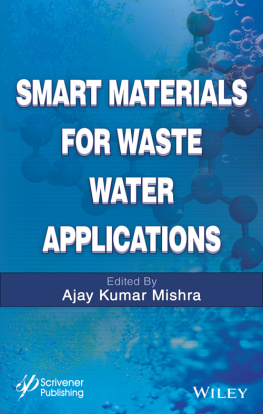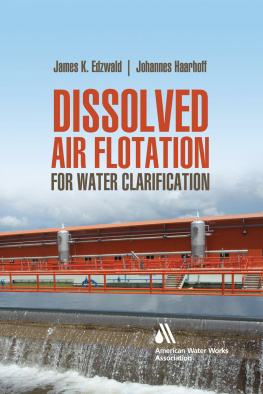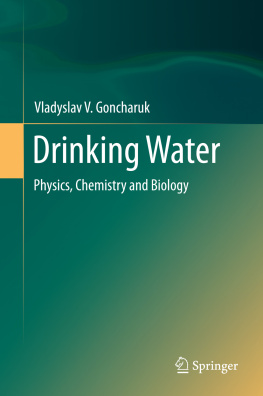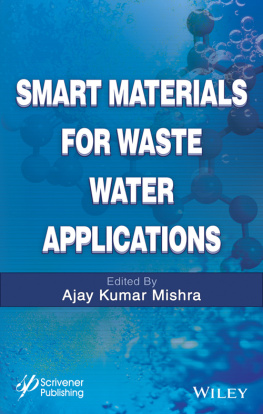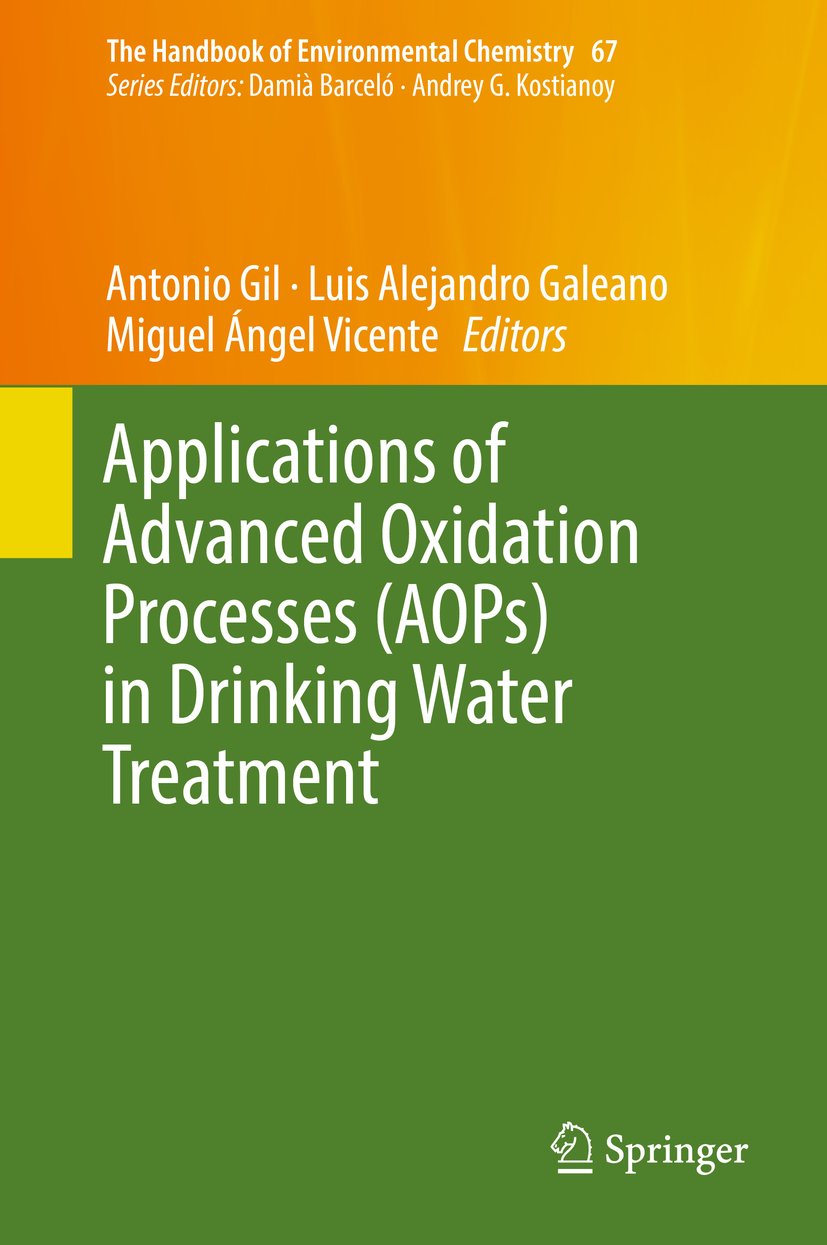Volume 67
The Handbook of Environmental Chemistry
Editors-in-Chief
Otto Hutzinger , Dami Barcel
Department of Environmental Chemistry, IDAEA-CSIC, C/Jordi Girona 1826, 08034 Barcelona, Spain
Catalan Institute for Water Research (ICRA), H20 Building, Scientific and Technological Park of the University of Girona, Emili Grahit, 101, 17003 Girona, Spain
Andrey G. Kostianoy
P.P. Shirshov Institute of Oceanology, Russian Academy of Sciences, 36, Nakhimovsky Pr., 117997 Moscow, Russia
Editorial Board
Jacob de Boer
IVM, Vrije Universiteit Amsterdam, The Netherlands
Philippe Garrigues
University of Bordeaux, France
Ji-Dong Gu
The University of Hong Kong, China
Kevin C. Jones
University of Lancaster, UK
Thomas P. Knepper
University of Applied Science, Fresenius, Idstein, Germany
Alice Newton
University of Algarve, Faro, Portugal
Donald L. Sparks
Plant and Soil Sciences, University of Delaware, USA
More information about this series at http://www.springer.com/series/698
Editors
Antonio Gil , Luis Alejandro Galeano and Miguel ngel Vicente
Applications of Advanced Oxidation Processes (AOPs) in Drinking Water Treatment
Editors
Antonio Gil
Department of Sciences, Public University of Navarra, Pamplona, Spain
Luis Alejandro Galeano
Department of Chemistry, University of Nario, Pasto, Nario, Colombia
Miguel ngel Vicente
Department of Inorganic Chemistry, University of Salamanca, Salamanca, Spain
ISSN 1867-979X e-ISSN 1616-864X
The Handbook of Environmental Chemistry
ISBN 978-3-319-76881-6 e-ISBN 978-3-319-76882-3
https://doi.org/10.1007/978-3-319-76882-3
Library of Congress Control Number: 2018946685
Springer International Publishing AG, part of Springer Nature 2019
This work is subject to copyright. All rights are reserved by the Publisher, whether the whole or part of the material is concerned, specifically the rights of translation, reprinting, reuse of illustrations, recitation, broadcasting, reproduction on microfilms or in any other physical way, and transmission or information storage and retrieval, electronic adaptation, computer software, or by similar or dissimilar methodology now known or hereafter developed.
The use of general descriptive names, registered names, trademarks, service marks, etc. in this publication does not imply, even in the absence of a specific statement, that such names are exempt from the relevant protective laws and regulations and therefore free for general use.
The publisher, the authors, and the editors are safe to assume that the advice and information in this book are believed to be true and accurate at the date of publication. Neither the publisher nor the authors or the editors give a warranty, express or implied, with respect to the material contained herein or for any errors or omissions that may have been made. The publisher remains neutral with regard to jurisdictional claims in published maps and institutional affiliations.
This Springer imprint is published by the registered company Springer International Publishing AG part of Springer Nature.
The registered company address is: Gewerbestrasse 11, 6330 Cham, Switzerland
Foreword
Safe and readily available water is crucial for public health, and thus, the purification of drinking water is of such vital importance. Advanced oxidation processes (AOPs) are among the most promising methods to replace or integrate with conventional drinking water purification technologies. AOPs are rarely applied alone, but in combination with other treatment methods to obtain optimal removal rates.
All AOPs involve the generation of highly reactive oxygen species. These methods are of interest to public health, as they have the potential for complete mineralization of recalcitrant compounds, but at high concentrations of organic compounds, their application is more limited due to the high energy and oxidant consumption.
AOPs are efficient in natural organic matter (NOM) reduction and mitigation of disinfection by-product (DBP) formation, though the use of AOPs for disinfection is less studied in comparison to chemical degradation. Also, they can be used for the removal of taste and odor causing components from water as well as for the elimination of the emerging contaminants, such as pharmaceuticals. Importantly, the selection of a specific AOP depends strongly on the physicochemical properties of the water to be treated.
Full-scale applications of AOPs are still limited. This book offers major developments in recent research to put AOPs in practice. It provides a unique, holistic perspective on basic and applied research issues regarding the application of AOPs in drinking water purification. The reader finds up-to-date information and solutions on AOPs from many leading experts in the field. The 15 chapters of the book form a most useful, structured, and timely contribution to our understanding of the application of AOPs in drinking water purification.
Mika Sillanp
The Handbook of Environmental Chemistry Also Available Electronically
The Handbook of Environmental Chemistry is included in Springers eBook package Earth and Environmental Science . If a library does not opt for the whole package, the book series may be bought on a subscription basis.
For all customers who have a standing order to the print version of The Handbook of Environmental Chemistry , we offer free access to the electronic volumes of the Series published in the current year via SpringerLink. If you do not have access, you can still view the table of contents of each volume and the abstract of each article on SpringerLink ( www.springerlink.com/content/110354/ ).
You will find information about the
Editorial Board
Aims and Scope
Instructions for Authors
Sample Contribution
at springer.com ( www.springer.com/series/698 ).
All figures submitted in color are published in full color in the electronic version on SpringerLink.
Aims and Scope
Since 1980, The Handbook of Environmental Chemistry has provided sound and solid knowledge about environmental topics from a chemical perspective. Presenting a wide spectrum of viewpoints and approaches, the series now covers topics such as local and global changes of natural environment and climate; anthropogenic impact on the environment; water, air and soil pollution; remediation and waste characterization; environmental contaminants; biogeochemistry; geoecology; chemical reactions and processes; chemical and biological transformations as well as physical transport of chemicals in the environment; or environmental modeling. A particular focus of the series lies on methodological advances in environmental analytical chemistry.
Series Preface
With remarkable vision, Prof. Otto Hutzinger initiated The Handbook of Environmental Chemistry in 1980 and became the founding Editor-in-Chief. At that time, environmental chemistry was an emerging field, aiming at a complete description of the Earths environment, encompassing the physical, chemical, biological, and geological transformations of chemical substances occurring on a local as well as a global scale. Environmental chemistry was intended to provide an account of the impact of man's activities on the natural environment by describing observed changes.

